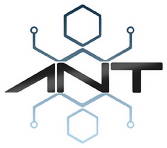AUTOSAR SIP Integration:
An AUTOSAR Software Integration Package (SIP) is a pre-configured set of standardized software components, modules, and tools designed to facilitate the seamless integration of AUTOSAR-compliant software into a vehicle’s electronic control units (ECUs) or systems.
At Adami, our main domain of expertise is the Integration and Configuration of the BSW modules in AUTOSAR architecture. Here are some of the key Basic Software Modules we are highly experienced working with:
- Memory Stack (NvM, Fee, Fls): The Memory Stack provides memory management services, including memory allocation and deallocation, memory locking, and memory protection. It ensures efficient memory utilization and prevents memory-related issues.
- Communication Stack (PDUR, Com, CanIf, CanTP, CAN, ETH): The Communication Stack includes modules for various communication protocols such as CAN (Controller Area Network), LIN (Local Interconnect Network), Ethernet, FlexRay, and more. These modules handle the communication between Electronic Control Units (ECUs) within the vehicle.
- Diagnostic Stack (DCM, DEM): The Diagnostic Stack handles the communication between ECUs and external diagnostic tools. It supports functions like reading and clearing diagnostic trouble codes (DTCs), providing vehicle information, and performing diagnostic tests.
Our Integration Process:
- Component Selection: The SIP includes a collection of pre-built AUTOSAR software components and modules relevant to specific vehicle functionalities. These components span various domains like powertrain, infotainment, chassis, and more.
- Configuration: Engineers configure the chosen components based on the vehicle’s specific requirements and intended functionalities. This involves adjusting parameters, defining interfaces, and establishing communication protocols.
- Integration: Configured software components from the SIP are integrated into the target ECUs or systems. This step ensures that the components work harmoniously without conflicts.
- Testing: Rigorous testing is conducted to verify the correct functioning and performance of the integrated software. This encompasses functional, communication, and potentially security testing.
- Validation: The integrated software undergoes validation to ensure it meets the expected functionality and safety standards of the vehicle.
Benefits of Our Service:
- Time Efficiency: SIP integration significantly reduces the time and effort required for integrating AUTOSAR software components into the vehicle’s systems. It leverages pre-configured components, saving the need for building everything from scratch.
- Standardization: The SIP adheres to AUTOSAR standards, ensuring compatibility and interoperability among various software components and ECUs.
- Consistency: The standardized SIP approach helps maintain consistency across different vehicle projects and development teams.
- Reduced Errors: By using pre-tested components and tools from the SIP, the likelihood of errors during integration decreases, resulting in more reliable software systems.
- Customization Focus: While the core components are pre-configured, engineers can focus on customizing the software to suit the specific requirements of the vehicle and its functionalities.
In conclusion, an AUTOSAR Software Integration Package (SIP) is a valuable tool that streamlines and expedites the integration of AUTOSAR-compliant software components into automotive systems. It optimizes development time, reduces errors, and adheres to industry standards, contributing to efficient and dependable vehicle development. Contact us to explore how our tailored integration solutions can optimize your software and hardware interaction within the AUTOSAR framework, ultimately enhancing your system’s AUTOSAR-based performance and functionality.


